2020 CESM Tutorial Participants
Below are the participants of the 2020 CESM Tutorial. Featuring a picture and short bio about them.
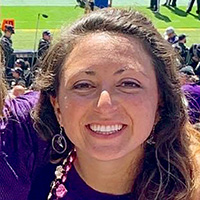
Marybeth Arcordia
I am a 5th year PhD student at the University of Miami Rosenstiel School of Marine and Atmospheric Science in the Atmospheric Sciences Department. I study climate variability and predictability. I look at how particular atmospheric and oceanic conditions in the tropical Indian and Pacific Oceans can affect weather and extreme events in the United States on a subseasonal (2 week-2 month) time scale. More specifically, I focus on how MJO and ENSO teleconnections interfere to impact U.S. precipitation through observational and modeling analyses. We hope to find those particular conditions that can lead to more confident climate forecasts on subseasonal to seasonal time scales.

Jie Chen
Jie (“jyeh" with a rising tone) is a doctoral candidate working with Prof. Dan Chavas in the Department of Earth, Atmospheric, and Planetary Sciences at Purdue University. Prior to Purdue, she earned her M.Sc from the University of Hawaii at Manoa and B.Sc from the NUIST, majoring in atmospheric sciences. Jie is interested in understanding the physics governing the inland evolution of hurricane low-level windfield, which is essential to a credible estimation of inland hazards. Jie's research interests include but are not limited to the impacts of climate change on hurricane landfall, in-situ observations of landfalling hurricanes, and risk assessments of hurricane-induced hazards. Learning new techniques and learning about new fields also inspire her and keep her a happy researcher. When not working, Jie is a recovering sketcher, a genuine fan of Douglas Adams, and a beginning Go player. She is also the Chief Petting Officer for cat Artemis.
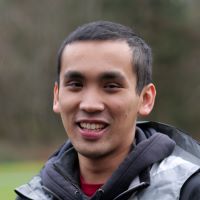
Anson Cheung
I am a PhD candidate at Brown University. My research interests include understanding how and why climate varies on interannual to multi-millennial timescales. I use a variety of tools (e.g. modern and past climate records, climate models) to address questions related to this topic. My current research involves using molecules preserved in ocean sediments to reconstruct sea surface temperature variations in the Pacific over Holocene (past ~11000 years) and climate model simulations to infer mechanisms driving changes observed in these paleoclimate proxies. Outside of research, I enjoy singing in the choir, biking, running, and watching TV.

Jacob Cohen
I am finishing up my first year in the School of Oceanography at the University of Washington, where I study regional and temporal patterns of air-sea interaction in the Southern Ocean using satellite data. I use the observed lagged-correlation relationship between SST and turbulent heat flux to determine what process drives heat exchange. With the resources I gain during this tutorial, I plan to examine the relationships between atmospheric and oceanic processes and the feedback of SST to turbulent flux in a hierarchy of global CESM simulations. In addition to this research and climate modeling broadly, I am interested in climate policy and environmental justice work.
Outside of work, I enjoy hiking, playing ultimate frisbee, and being outdoors. I’ve replaced some of my more active hobbies with cooking, baking, and reading since quarantine started. I have filled the rest of my time this summer planning the Graduate Climate Conference (a conference hosted by and for graduate students researching climate science) and serving on a committee to fund projects that work toward racial and environmental justice at UW.

Greg Cooke
I am a PhD student at the University of Leeds (UK) investigating rocky exoplanet (planets orbiting other stars) atmospheres. I will be using and modifying CESM2 to characterise various atmospheres on exoplanets that orbit stars similar and dissimilar to the Sun. Given the vast number of astrophysical environments, understanding a wide variety of atmospheres is vital for progress to be made in the field, with the use of 3D global climate models at the forefront of research. A particular goal of my PhD is understanding climate conditions unlike anything witnessed in the solar system. For example, it is likely that many terrestrial-sized exoplanets will be tidally locked, rotating at the same rate as their orbital period, with a ‘hot’ and a ‘cold’ side. I am particularly interested in how telescope observations, in conjunction with 3D climate models, can be used to reliably predict atmospheric conditions and determine how many habitable worlds there really are in our galaxy.
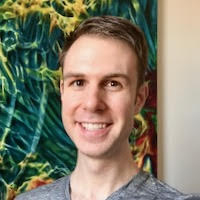
Kevin DallaSanta
I am a postdoctoral fellow at the NASA Goddard Institute for Space Studies in New York City, and previously studied at the Courant Institute at New York University. My area of interest is atmospheric dynamics, especially volcanic eruptions, the Quasi-Biennial Oscillation, and annular modes. During quarantine, I have enjoyed music, reading, and urban hiking. After quarantine I look forward to conference travel and finally meeting other CESM participants face-to-face!
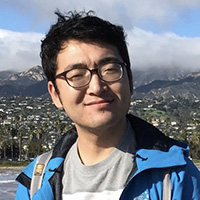
Leyang Feng
I’m a second year PhD student at Department of Environmental Health and Engineering, the Johns Hopkins University. I previously worked in greenhouse gas research at the Pacific Northwest National Lab, and is currently working on my first PhD project about US methane trends. I have a broad interests in greenhouse gas modeling, inverse modeling, and software engineering, and specifically my research focuses on US methane estimation. In my spare time I enjoy fishing and hiking.

Michelle Gore
I am a PhD student at the Pennsylvania State University advised by Prof. Colin Zarzycki. My current research investigates extratropical cyclones and the related extreme events in the northeastern US by using self-organizing maps to classify the associated large-scale meteorological patterns. I am from South Africa where I did my undergraduate and Masters’ degree at the University of Cape Town, majoring in atmospheric science and oceanography. My Masters’ research focused on extreme events and the teleconnections with different modes of ENSO variability. Besides pursuing my studies, I have also spent a lot of time volunteering in South Africa with children from many diverse backgrounds. Other personal interests and hobbies include art, nature and travel.

Patrick Gray
Patrick Gray is a marine scientist at the Duke University Marine Lab with the Marine Robotics and Remote Sensing Group. He is broadly interested in remote sensing science from physical theory to mission and sensor development to data analysis, the interconnected Earth system, and ocean exploration on Earth and other planetary bodies.
Patrick's doctoral research focuses on satellite and drone based remote sensing of the ocean to understand spatial and temporal variability of ocean biology, specifically asking if we're missing submesoscale phytoplankton patterns in satellite products and models that may be important to the Earth system. Working at the confluence of remote sensing and biological oceanography he leans heavily on machine learning and scientific computing tools for parsing large satellite, drone, and in-situ oceanographic data streams. He's particularly interested in tools and research that will be relevant both for terrestrial oceanography and on other ocean worlds.
Patrick loves fieldwork and has had the good fortune of conducting research in Antarctica, Iceland, and across the Southeast US seaboard, typically piloting drones for coastal and oceanographic work, but on occasion for planetary analog research. His bachelor's degree is in Computer Science from the University of North Carolina at Chapel Hill.
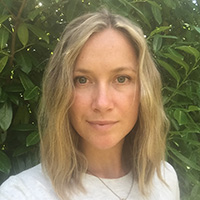
Linnia Hawkins
I am a postdoctoral scholar in the College of Forestry at Oregon State University. My research uses ecosystem models to investigate linkages between the carbon and water cycles at a range of spatial and temporal scales. I am particularly interested in the representation of hydraulic regulation of stomatal functioning in Earth System models, and the impacts on land-atmosphere interactions under changing climate conditions. My previous work has focused on large ensemble modeling and parameter estimation. I spend my free time in the mountains skiing, biking, or hiking with my two dogs.

Yungi Hong
I’m Yungi Hong, and Ph.D.student in Gwangju Institute of Science and Technology (GIST). I’m interest in the relationship between the Arctic and mid-latitude. During master degree, I did research about the Warm Arctic Cold Continents (WACC). It also can be called Warm Arctic Cold Eurasia (WACE). I compared the frequency of the cold event in mid-latitude region when the Arctic region’s temperature over the specific temperature. I have been doing further research about WACE to find out causality or mechanism.
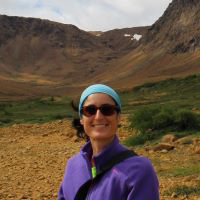
Marta Moreno Ibáñez
Marta is a PhD candidate in Earth and atmospheric sciences at the University of Quebec in Montreal (UQÀM), Canada. The aim of her research is to analyse the development mechanisms of polar lows, which are intense maritime mesoscale systems that develop near the poles. As part of her research, she conducts simulations of observed polar lows using the Canadian Regional Climate Model and verifies the simulation output against observational data. She would like to simulate polar lows with the CESM since modelling the interaction between the atmosphere, the cryosphere and the ocean is essential to better understand how polar lows form and how they affect other components of the climate system. Marta is an individual council member of the Association of Polar Early Career Scientists (APECS). She is currently coordinating the early career researchers group review of the IPCC report organized by APECS, MRI, PAGES ECN, PYRN and YESS. Marta is also a member of the Editorial Board of the State of Environmental Science in Svalbard (SESS) report 2020. In her free time, she enjoys running, biking, hiking and camping.

Yuming Jin
I am a second-year Climate Science Ph.D. student at Scripps Institution of Oceanography. I study the exchange of CO2 and O2 between four reservoirs: the biosphere (photosynthesis and respiration), the lithosphere (soil and fossil pool), the hydrosphere (surface and deep ocean), and the atmosphere, with the time scale from synoptic to interannual. I am also interested in studying the variability of each reservoir under global climate change. In my leisure time, I love hiking, camping, and recording our planet Earth with a camera.
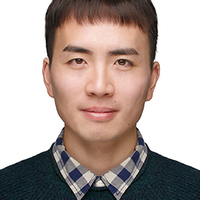
Qinqin Kong
Hi, this is Qinqin Kong, a PhD student in Purdue University. My research interest covers heat stress prediction and other extreme climate events particularly compound events. One important component of my PhD research will be using CESM to explore the underlying processes that affect heat stress and other extreme climate events, and investigate their response to climate change.
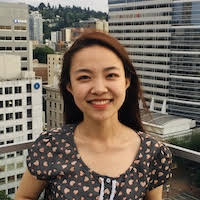
Haofan Li
My name is Haofan Li, I am starting my second year of PhD study at North Carolina State University. I got a B.S. degree in Civil & Environmental Engineering from Northeastern University, and a M.S. degree in Civil and Environmental Engineering from Carnegie Mellon University. My research interests lie primarily in climate and air quality modeling. My current research at NC State focuses on predicting climate change and climate internal variability impacts on air quality/fire risk, utilizing CESM-LE output data. In my spare time, I enjoy doing yoga and cooking/baking, and I have recently (since quarantine) developed strong interest in playing Animal Crossing New Horizons (an island building video game).

Xinchang Li
Xinchang ‘Cathy’ Li is a PhD student in Civil and Environmental Engineering from University of Illinois at Urbana-Champaign, with an interdisciplinary background in building and atmospheric sciences. Her doctoral research concerns the interactions between urban energy demand and climate change, where she works to establish a new framework combining climate modeling and big-data driven methods to create global multi-model projections of urban energy use under future climates. She is also interested in improving urban representations in climate modeling and innovative energy solutions that address urban energy and climate challenges and sustainable development. She is very excited for the opportunity to attend NCAR’s 2020 CESM Tutorial and is looking forward to connecting with fellow students and scientists.

Chang Liu
I am a PhD candidate in Geoscience Department at the University of Arkansas. I received the B.S. degree in Atmospheric Sciences from Lanzhou University, in 2014, and the M.S. Degree in Applied Meteorology from Lanzhou University in 2017. My main research interests include paleoclimate data assimilation and future climate changes. Specifically, I reconstructed the past climate over North America and Asia through the Ensemble Kalman Filter method. Meanwhile, I also used CESM models to study the changes of aridity and climatic regimes in the future.

Glenn Liu
Hi, I’m Glenn Liu, a first-year PhD student in Physical Oceanography at the MIT-WHOI Joint Program. My interests are in climate dynamics and variability, with a particular focus on understanding the ocean’s role. Currently, I work with Young-Oh Kwon on investigating the drivers of Atlantic Multidecadal Variability through analysis of the CESM1 Large Ensemble simulations and building simple stochastic models to capture the upper ocean response to atmospheric forcing. My undergraduate degree was in Environmental Studies and Earth Science at the City University of New York, Hunter College.
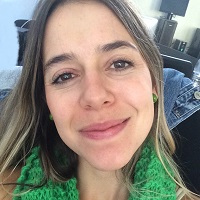
Fernanda Marcello
I'm a PhD student at the Oceanographic Institute of the University of São Paulo - Brazil, where I study the physical oceanography of the South Atlantic Ocean. Specifically, I have focused on its large scale circulations which encompass the South Atlantic subtropical gyre and the upper limb of the Atlantic Meridional Overturning Circulation. Implications of my research include shedding light to possible climate change scenarios and improving our understanding of the ocean’s role in climate variability.
I've been using CESM data for a while and I believe the tutorial will help me to gain new insights and understanding of how the model functions and how to optimally explore its possibilities.
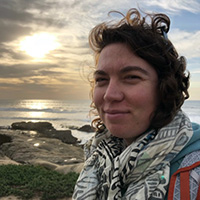
Isabel L. McCoy
I am a PhD candidate in the Atmospheric Sciences Department at the University of Washington. My research focus is on understanding aerosol-cloud interactions in pristine atmospheres (i.e. like the pre-industrial) using a mixture of observations (satellite and aircraft) and models (global climate and large eddy scale). My post-doctoral work will focus on how low, marine cloud organizational structures (on the ~100 km scale) are controlled by the environment. These cloud organizational structures are potentially significant to the radiation balance of the Earth system and may help us understand how low clouds will respond to climate change. I hope to understand how we should go about accounting for the sub-grid scale radiative characteristics of these structures in CAM6 through this CESM tutorial. In my spare time, I like to read, watch a bit too much TV, and appreciate the clouds passing me by in my beautiful home state of New Mexico.
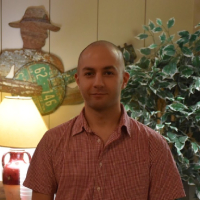
Soroush E. Neyestani
I started my Ph.D. study in Engineering in Fall 2017 at the University of Georgia. I received Master of Science in Environmental Engineering from the University of Tehran, Iran (2016) and Bachelor of Science in Mining Engineering from Azad University – South Tehran, Iran (2013). My main research interest is using regional and global climate models to identify the role of atmospheric aerosols on air quality and the climate. My research is focused on the interaction of light-absorbing atmospheric aerosols (e.g. black carbon) and the solar radiation. I use chemical transport and radiative transfer models in order to investigate the emission, transport, and climate impacts of the particles emitted from combustion with both natural (e.g. wildfire) or anthropogenic (e.g. vehicle engine) sources.
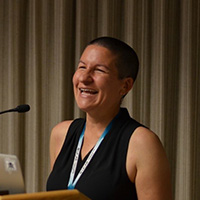
Holly Olivarez
Holly Olivarez is an NSF Graduate Research Fellow in the Environmental Studies Program and the Institute of Arctic and Alpine Research (INSTAAR) at University of Colorado Boulder.
The burning of fossil fuels is rapidly increasing the amount of carbon in the atmosphere and leading to global warming. The ocean takes up a large fraction of fossil fuel carbon and acts to slow the rate of global warming. At the same time, however, the ocean becomes more acidic as it takes up more and more carbon. Measurements suggest that this absorption has changed a lot from one year to the next and from one decade to the next, and because of this, it is difficult to predict how it will evolve in the future. I study the absorption of carbon by the ocean and analyze the internal variability and external forcings as drivers of these variations in ocean carbon absorption.
Outside of research, Holly gives talks about talking about climate change to family and friends, the connection between climate change and COVID-19, and the connection between climate injustice and racial injustice. She is currently experimenting with social media and the Arts. Holly is also heavily involved in creating systems change that is centered in antiracism at the University of Colorado Boulder.
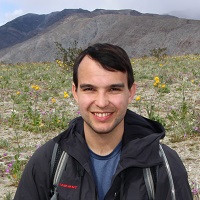
Pascal Polonik
I grew up in Davis, CA after moving there from Germany when I was 5. In 2015, I graduated with degrees in Environmental and Atmospheric Science from UC Berkeley, where I used eddy covariance data for my undergraduate thesis. I then worked on a gas analyzer intercomparison project with AmeriFlux at Lawrence Berkeley National Lab, and later moved to Munich, Germany to pursue a Masters degree in Meteorology at LMU Munich. There I wrote a thesis about modeled and measured aerosol-cloud interactions from biomass burning in the Amazon and had ample opportunities to enjoy the Bavarian Alps. In fall 2018, I left the mountains for the beaches at the Scripps Institution of Oceanography at UC San Diego, where I am now a PhD student in Climate Science. Recently I have been working on uncertainties in aerosol-induced global temperature change and health impacts under the national greenhouse gas reduction commitments from the Paris climate agreement. In addition to outdoor activities like running, swimming, biking, hiking, etc., I enjoy strenuous indoor activities like brainstorming sustainable local transportation options.
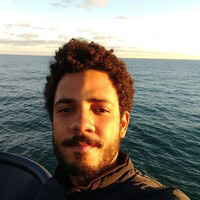
Maurício Rebouças Rocha
I have a Bachelor of Science degree in oceanography by the Federal University of Bahia and a Master's degree in meteorology by the Federal University of Campina Grande. I am currently a Ph.D. Student in Physical Oceanography at the University of São Paulo (Oceanographic Institute). My research focuses on the impact of the Atlantic Meridional Overturning Circulation (AMOC) in the Meridional Heat Transport (MHT) of the South and Tropical Atlantic, and in turbulent heat fluxes (latent and sensible) of the air-sea interface, mainly in multidecadal and interannual time scales. I am also interested in understanding how those variables can modify the climate system, for instance, the long-term variation in the position of the Inter-Tropical Convergence Zone (ITCZ) on the Atlantic, due to its dependence of sea surface temperature and heat fluxes.
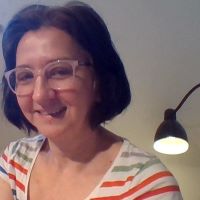
Rachel Spratt
Rachel Spratt just graduated from UCSB with a PhD degree in Marine science. She recently created complex model means of surface ocean temperature, evaporation and precipitation to use as parameters for her simple model of Atlantic ocean circulation. She hopes to learn how to use the outputs of the icesm in order to compare them to her simple model in both the modern and Last Glacial Maximum eras.
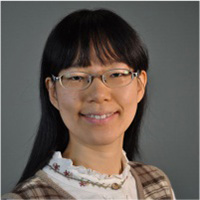
Pei-Ling Wang
I am a PhD candidate at Geography, University of Victoria, Canada and an Earth scientist with experience in soil, groundwater, earthquake, remote sensing, oil and gas, mining, and education. My current research looks into how human land uses and land covers affect soil properties at a global scale. I am building a soil degradation model to assess how global soils were changed by human activities in the past 1000 years. We know soils play an important role in water, energy, and biogeochemical cycles. However, soils currently stay constant in Earth System Models regardless of the changing land uses and land covers in the history, and the results will affect model projections and impact assessments. My goal is to apply the soil history into CESM to explore the impacts of human-induced soil degradation on global water and climate. Beyond research, I am also an artist and my personal interest is combining sciences and arts in public education. Here is an animation I made to explain to non-scientists about my research: https://www.youtube.com/watch?v=Vtiv72UUc4gM
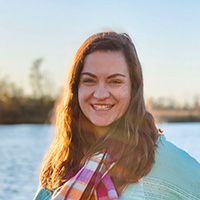
Lori Jean Wachowicz
I am currently a PhD candidate in the Department of Geography at the University of Georgia. I received my BS in Earth Science from Michigan State University and my MS in Geography at the University of Georgia. My research interests are broadly associated with synoptic-dynamic climatology, hydroclimatology, and the cryosphere. More specifically, I am interested in the mechanisms by which moisture is transported into the Arctic and its implications on sea ice, which is the topic of my dissertation research. I am also interested in understanding the connection between high-latitude blocking and the cryosphere, as well as ENSO variability as it pertains to change in the Arctic climate by using climate models.
When I am not busy with research, I enjoy spending time outside (preferably near a body of water) with friends, watching college football, and exploring new restaurants and breweries. I also enjoy my time with my dog, Radar, and my cat, Newt.
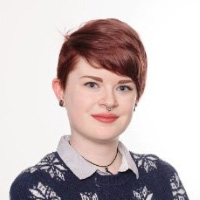
Nicola Wiseman
I am an upcoming 3rd year graduate student in Earth System Science at the University of California, Irvine, where I specialize in ocean biogeochemistry. My research interests include variable phytoplankton stoichiometry, increasing biological realism in earth system models, and the impacts of the biological pump on the carbon-climate system. I currently work with the Biogeochemical Elemental Cycling (BEC) model within CESM. Previously, I have used artificial neural networks to constrain estimates of global ocean methane emissions. When I’m not doing research I enjoy spending time with my cat, going camping, and playing video games. My goal is to visit every national park in California before the end of my PhD!

Nathaneal Wong
I am a PhD Graduate student at Harvard who aims to study tropical dynamics and phenomenon using a combination of observational and modelling data. My current interests involve investigating the effect of the Maritime Continent’s islands on global climate and the dynamics of convection over the region. I also engage on other projects on GPS Meteorology over the Southeast Asian region. In my spare time, I like to run and dance to Kpop.

Chao Wu
Chao Wu is a postdoctoral associate at Yale University, he is interested in fire modeling and how fire-induced biogeochemical cycles respond to climate change. He received his dual PhDs from Tsinghua University and University of Exeter where he studied wildfire dynamics and the impacts of fire on the global carbon cycle, vegetation distribution, and feedbacks to the climate system. Now he aims to improve global fire models, specifically in their representations of fire size and duration to better understand extreme fires. He is now working on improving fire spread in CLM in cooperation with fire scientists in NCAR and other institutions.

Kayla Yamamoto
My name is Kayla Yamamoto and I am a Climate Modeling Data Analyst for the University of Hawaii. I have a Master’s degree in Atmospheric Sciences, where my research focused on aerosol-cloud interactions from Kilauea Volcano using satellite data and a local Vog dispersion model. I currently work on a storm surge research team, in which I am responsible for the atmospheric component of earth modeling systems. Our goal is to produce place-based inundation risk assessments in order to help shape local policy and infrastructure. Born and raised in Hawaii, I have a special interest in improving the resilience of local communities and ecosystems to the hazards of climate change for a better and more sustainable future.

Keer Zhang
I am Keer Zhang, a second-year Ph.D. student from Yale School of the Environment. My research focuses on urban climate and boundary layer meteorology. I am particularly interested in urban heat island (UHI) and heat stress measured by wet-bulb temperature. In my spare time, I like gardening and watching classic movies. I hope that I can get a better understanding of CESM and meet some friends with similar interests in this tutorial!
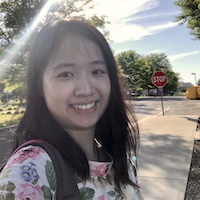
Fangze Zhu
I am a PhD student at University at Albany, State University of New York. I am seeking to understand glacial-interglacial cycles during the past two million years. Specifically, my PhD project focuses on the role of orbital forcing and nonlinear interactions and feedback processes in the climate system (e.g., carbon cycle feedbacks; AMOC) in shaping long-term climate statistics.
Currently, I am working on multiple equilibria in the climate system using a fully coupled ocean-atmosphere-sea ice model with an interactive carbon cycle. My goal is to find out a potential linkage between multiple equilibria and large climatic shifts in the Earth’s history, and finally, to explain the Quaternary glacial-interglacial cycles using a hierarchy of climate models.
Tutorial Links
- Home: Main page for the 2020 CESM tutorial
- Agenda: View the agenda in pdf format
- Announcement: Information about the event and how to apply to the tutorial
- Participants: Participants of the 2020 CESM Tutorial
- Prerequisites: Please complete the following activities to ensure you are prepared for the tutorial
- Coursework: View the sciences presentations and the labs exercises.